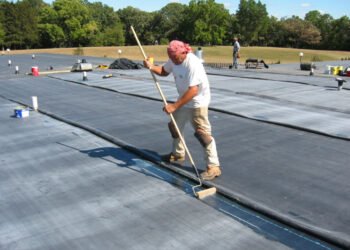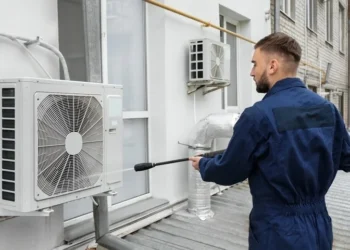Windows that leak cold or hot air are a big problem in any household. They cost you money, make your home less comfortable, and can affect the health of those living there.
Windows replacement that you need in Austin needs to withstand multiple kinds of weather. They help homes be more energy efficient and reduce outside noise, so you have a more comfortable life. Read to learn which energy-efficient windows are right for you. You’ll save on your energy bills and make your home look good too!
Windows for Regions with Cold Climate
Whether it is a replacement window or new addition to your home, you want something that will protect your family from the elements. The windows for cold climate regions are:
- Double or triple-glazed windows. They are energy efficient because they keep heat inside during the winter while allowing light and air into your home during other times. Double-glazed windows have an R-value of 2.04-2.34, while triple-glazed windows have an R-value of 2.56-3.23, depending on the gap.
- Aluminum-clad unit. It has an exterior frame made out of aluminum that allows rapid heat transfer.
- Vinyl windows have a high level of resistance to impact, which means they can withstand hail and other debris, such as tree branches. They also won’t rust or warp and are energy efficient.
Windows for Regions with Hot Climates
Choosing windows that will help keep your home cool and comfortable during summer is essential in hot climates. Some of the best windows for hot climates include:
- Low-E windows: Low-E windows have a special coating that reflects heat into your home, helping to keep it warm in the winter. This coating helps block the sun’s heat and UV rays in the summer, keeping your home cool and reducing energy bills.
- Double-paned windows: They reduce heat gain by 30%; therefore, they are highly insulative, and their U value is 1.2-3.7. The air space helps to insulate the window, which can keep your home cooler in the summer.
- Tinted windows: Tinted windows have a special coating that blocks some of the sun’s heat and UV rays.
- Shutters: Shutters can block the sun’s rays from entering your home through the windows. You can close it during the day to help keep your home cool and open at night to allow for natural ventilation.
- Windows with awnings: Awnings is a fabric that blocks the sun’s rays from entering your home by 96%. The awning can be of natural wood, metal, or different polymers.
Windows for Regions with Stormy Climate
Choose windows that can withstand strong winds, heavy rain, and other extreme weather conditions in regions with stormy climates. Some of the best windows for stormy climates include:
- Impact-resistant windows: Impact-resistant windows have laminated glass designed to withstand the impact of flying debris.
- Storm windows: Storm windows provide an extra layer of protection against strong winds, heavy rain, and other extreme weather conditions. You can install it over your existing windows or as a standalone option.
- Double-paned windows: They have two panes of glass separated by a small air space. The air space helps insulate the window, making it more resistant to damage from strong winds. They also decrease the outside noise.
- Aluminum windows: Aluminum windows are known for their strength and durability. They are resistant to corrosion and can withstand strong winds and heavy rain.
How Do You Ensure You Weatherproof Your Windows?
Weatherproofing your windows is a simple way to protect your home from the elements. It’s also essential in preparing for winter or summer, as it will help you avoid costly repairs and keep drafts out of your house.
Here are tips for weatherproofing windows:
- Check for leaks by placing a wet cloth on the sill and checking for moisture under the window frame.
- Use caulk to seal cracks around the window frame, especially if they are visible or have gaps that allow air to flow through them.
- Apply weather stripping along the bottom of all windows and doors, including those that open. It keeps out drafts while allowing you to open and close them as desired.
- Ensure enough insulation inside your walls so that heat stays trapped during winter, reducing heating bills.
Windows are a significant component of the functioning and look of your home, so selecting them is essential. Avoid rushing your decision, but remember not to be drawn in by every fancy feature a salesman throws you. Take each window into consideration separately, and choose the one that allows in the light while keeping wind, cold, excess heat, and rain out of your home.












